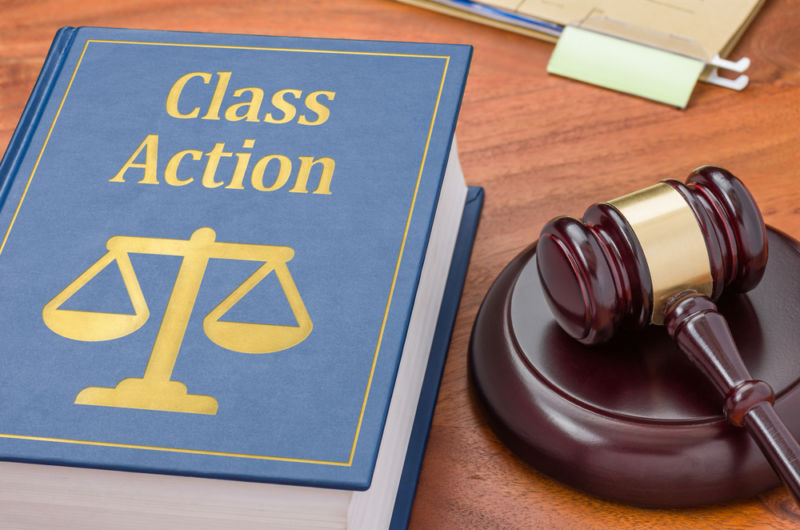Demystifying Course Activity Suits: A Closer Check Out Lawful Procedures
Course activity legal actions can be complex and intimidating, usually shrouded in a shroud of mystery for those unfamiliar with the legal procedures included. From understanding the criteria for class action eligibility to the role of class representatives, and from the procedure of course certification to the resolution of these lawsuits, we will unravel the complexities and dropped light on the inner functions of this legal mechanism.
Comprehending Class Action Suits
Understanding Class Activity Legal action calls for a thorough examination of the lawful procedures included in cumulative lawsuits. Course activity claims are a kind of legal action where a team of people with comparable cases or grievances collaborate to launch a legal action versus a typical defendant. This kind of litigation allows people with restricted resources to collectively look for justice, as it integrates the stamina of multiple specific insurance claims right into a single legal action.
The process starts with the identification of a lead complainant or class rep who files the initial issue in support of the entire course. The court then determines whether the instance satisfies the demands for course accreditation, which include commonness, numerosity, typicality, and adequacy of depiction. If accredited, the court alerts prospective class participants, providing a possibility to opt-out if they wish to seek their claims independently.
Once the course is certified, the lawsuits proceeds with various stages, consisting of discovery, activity practice, and, if essential, trial. The end result of the suit can cause a judgment or a negotiation, which is binding on all course members unless they pick to opt-out. Class action lawsuits can incorporate a wide variety of legal concerns, such as consumer security, securities scams, work discrimination, and ecological damage.
Recognizing the nuances of class action legal actions is important for both accuseds and complainants entailed in collective litigation. It needs an extensive understanding of the lawful needs for certification, the legal rights and commitments of course participants, and the potential benefits and dangers related to seeking or defending versus course activity cases.
Identifying Class Action Eligibility
To identify whether a lawsuit certifies as a course activity legal action, details criteria must be satisfied. These requirements are made to make certain that the instance can properly represent the interests of a large group of individuals who have suffered comparable harm or have actually been influenced by the very same issue. The key factor in identifying class activity eligibility is the existence of a typical concern or issue that affects all possible class members.
Firstly, a course activity claim needs numerosity, which implies there should be a significant variety of possible course members involved. This makes certain that a course action is an efficient means to resolve the cases of a big group of people, instead of having everyone file an individual legal action.
Second of all, there should be commonality amongst the insurance claims of the prospective class participants. This implies that there should be a common inquiry of legislation or reality that is main to the case. A class activity might not be suitable. if each potential class participant's claim is unassociated and unique to the others.

The Role of Course Representatives
Class agents play a critical role in class activity legal actions by representing the rate of interests of the whole course. These individuals are selected from within the course to act as the public face of the suit and are accountable for choosing in support of all course participants. The role of class reps entails various obligations and obligations throughout the lawful proceedings.
One of the primary obligations of course agents is to supply details and assistance to their fellow class members. They serve as a point of get in touch with and communication between the course participants and the lawyers representing them. This consists of maintaining the course participants educated around vital updates, answering their questions, and attending to any kind of problems they may have.
Class representatives additionally have the obligation to proactively take part in the lawsuits procedure (Future FinTech class action lawsuit). This includes working very closely with the attorneys to develop lawful methods, gathering proof, and supplying statement if necessary. They have to be actively associated with all facets of the situation to ensure that the most effective passions of the entire course are represented
Furthermore, course representatives are in charge of authorizing settlements or other resolutions gotten to in the legal action. They should thoroughly assess the terms of the negotiation and make a choice that is in the ideal rate of interest of the whole course. This decision-making process calls for cautious factor to consider and see this assessment with the class participants.
The Refine of Course Accreditation
The process of accrediting a course in a course action lawsuit entails a complete analysis of certain criteria to figure out if the instance meets the required needs for class qualification. Course accreditation is an essential action in the lawsuits process as it figures out whether a lawsuit can proceed as a class activity, permitting a huge group of individuals with similar cases to be represented collectively by one or a few people.
To get course certification, the plaintiff needs to show that the recommended course satisfies certain prerequisites. These prerequisites normally consist of numerosity, commonness, typicality, and competence of depiction. Numerosity requires that the class is so big that joinder of all members is unwise. Commonness demands that there are inquiries of regulation or fact typical to the class members. Typicality requires that the claims or this defenses of the class agents are normal of those of the course. Competence of depiction makes certain that the course reps will rather and adequately protect the interests of the class.
The court will certainly look at these standards and the plaintiff's evidence to determine if the recommended course meets the required requirements. The court might likewise consider various other aspects, such as whether a class activity is the remarkable method to resolve the disagreement and whether the class is completely cohesive.

When the court gives class certification, the lawsuit can continue as a class activity, permitting the plaintiffs to collectively look for relief and possibly get a judgment or settlement that benefits the whole class.
Resolving Course Action Lawsuits
As soon as class qualification has actually been granted, the following action in resolving a course action legal action is to browse the process of lawsuits or settlement arrangements. Litigation describes the legal process in court, where the plaintiff's lawyer provides proof and disagreements to support their insurance claims, and the defendant's lawyer counters with their own proof and arguments. This process can entail different phases, such as pretrial movements, exploration, and test. Throughout pretrial motions, both events might file activities to reject the instance or limit the concerns in contention. Discovery permits each side to gather evidence and details from the other celebration via techniques such as record depositions, interrogatories, and requests. If the case proceeds to trial, both events offer their case before a judge or court, that will you could try here then choose the result.
On the various other hand, settlement arrangements entail discussions between the events to get to a mutually acceptable resolution without going to test. Settlement offers might be made at any type of stage of the litigation procedure, and if both events concur, a settlement arrangement is reached.
Conclusion
In verdict, course action legal actions play a critical function in offering justice and compensation to huge teams of individuals that have been damaged by the exact same entity. By designating and licensing a class course agents, the lawful process becomes a lot more efficient and obtainable for the plaintiffs. Resolving these claims can be a complicated and extensive process, however it is essential in holding companies accountable for their actions and making certain fair results for all influenced parties.
From comprehending the criteria for class activity qualification to the role of class reps, and from the process of class qualification to the resolution of these suits, we will certainly untangle the intricacies and dropped light on the internal operations of this legal system. The crucial factor in identifying class activity qualification is the presence of a common inquiry or concern that impacts all potential class participants.
If each possible class participant's claim is distinct and unassociated to the others, a class action may not be suitable.
Class agents play a critical role in course action suits by representing the rate of interests of the entire class.When class accreditation has been approved, the following step in solving a course action suit is to navigate the process of litigation or settlement negotiations.